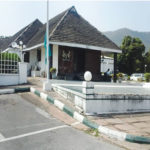
The government allowed private practice for these doctors because of the inadequacy of doctors. The practice has enabled specialist doctors to offer their services to private hospitals, especially when they have emergencies or need a specialist in a specific area to see patients. This practice has however been fraught with a lot of challenges and unethical practices. There are potential conflicts between public hospital work and ’extra work’. A doctor who is working long hours in private practice might be fatigued and less productive in his or her daytime work for the public hospital.
The practice has also encouraged doctors to make decisions on the basis of profit rather than need. When confronted with a choice between two treatment pathways in equipoise, spending time in public hospital that earns no additional money and time in a private hospital with a fat fee attached, that conflict becomes stark. Time spent in the private sector deprives the public hospital of a valuable resource. In addition, private practice creates a perverse incentive to increase public hospitals’ waiting time and erode confidence in those hospitals. Doctors then simply divert patients to the private clinics where they practise.
One may argue that since there may not be a sufficient number of hospitals to provide care for all patients, it would be good for doctors in public hospitals to continue in private practice or own hospitals as complementary measures. But the issue of diversion of patients and fatigue cannot be papered over. Furthermore, the public hospitals are subsidised by the government though they may still rely on internally generated revenue. But when a doctor working in such a hospital owns a private hospital, there is always the tendency for him or her to pay more attention and give a lot more of his or her time to the private business. Time is money: the more time the doctors put into private practice, the more money they make. Thus, private practice by doctors engaged in public hospitals makes public hospitals to suffer from insufficient care from the doctors.
Instead of maintaining the option of allowing private practice, the authorities should strengthen the present system with better facilities and incentives for doctors in public hospitals. The government must be concerned about revamping recruitment policies to fill vacant positions in government hospitals with the aim of retaining talent. The procedures for procurement should be reorganised to ensure that medicines and equipment of standard qualities are made available at all times. Efficiency should become the watchword in all the activities involved in running public hospitals so as to avoid frustrating medical staff with non-working equipment and uncommitted paramedic and labour staff.
An efficient and committed administration working closely with dedicated staff can make public hospitals excellent centres of healthcare. Those with talent and dedication will stay while those interested in making more money will leave at the cost of job satisfaction. Industry and financial institutions could contribute significantly towards improving hospital facilities with suitable donations and appropriate acknowledgements. We also call on the government to invite eminent people with professional management experience to participate in hospital management. There is no doubt that doctors will be attracted to work in congenial conditions and at the same time find satisfaction servicing the poor and underprivileged.
The government must recognise that the Rule 49 of the Code of Medical Ethics of the Medical and Dental Council of Nigeria (MDCN) permits medical practitioners of certain status who are in full-time employment in the public service in Nigeria to use their spare time and unofficial hours to engage in medical or dental practice for remuneration. Thus, there is the need for the government to work with the Council in dealing with the fallouts from this new policy. The MDCN is a body backed by an act of parliament. The informed opinion of the MDCN will be valuable in implementing the new policy or in modifying it for effective implementation.
WATCH TOP VIDEOS FROM NIGERIAN TRIBUNE TV
- Relationship Hangout: Public vs Private Proposals – Which Truly Wins in Love?
- “No” Is a Complete Sentence: Why You Should Stop Feeling Guilty
- Relationship Hangout: Friendship Talk 2025 – How to Be a Good Friend & Big Questions on Friendship
- Police Overpower Armed Robbers in Ibadan After Fierce Struggle





